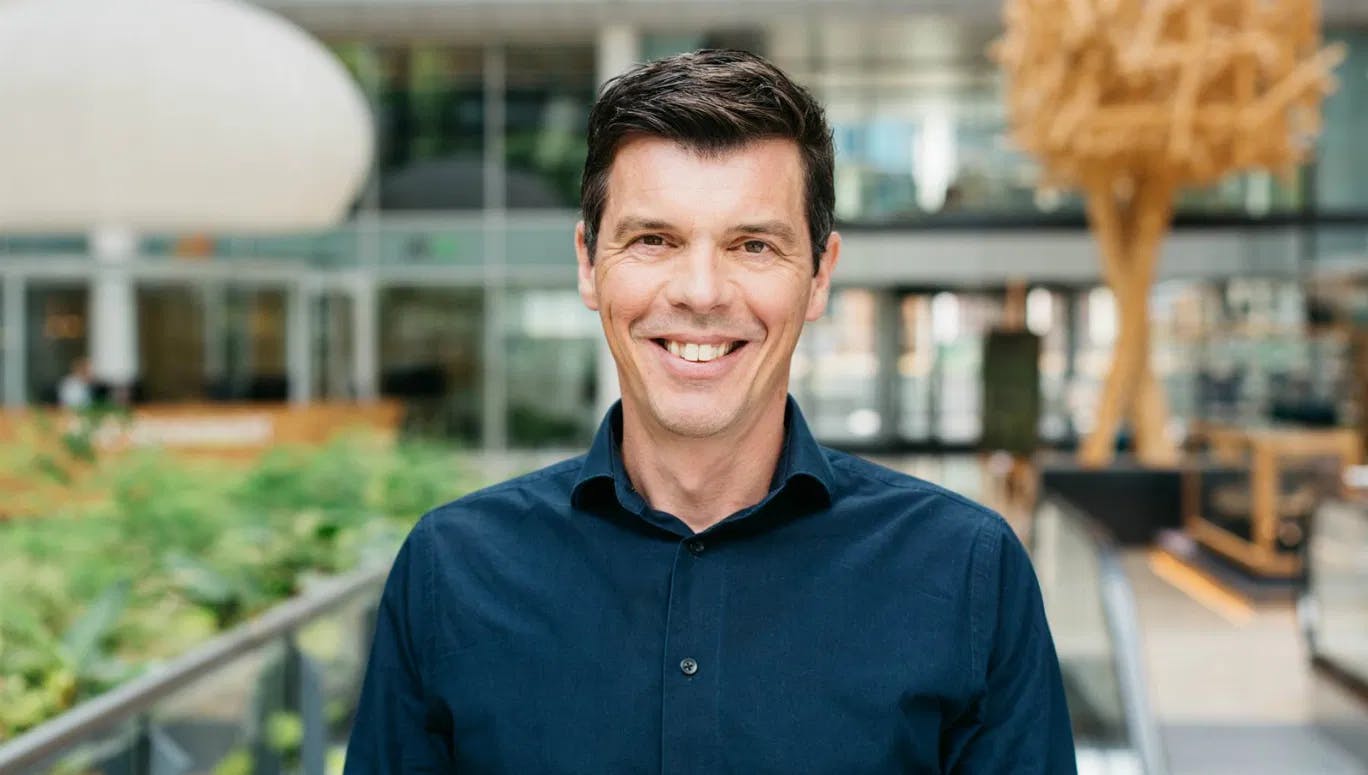An interview with Peter de Kruijk
Peter de Kruijk is the Director of Amsterdam International Business. In this interview, he explains how bringing together amsterdam inbusiness, IN Amsterdam and Amsterdam Trade & Innovate opens up new possibilities and streamlines progress towards a better, more innovative Amsterdam Area.
Peter de Kruijk is the presiding director of Amsterdam International Business, a new umbrella organisation combining amsterdam inbusiness, Amsterdam Trade & Innovate and IN Amsterdam. He succeeds Hilde van der Meer, who was appointed as commissioner of the Netherlands Foreign Investment Agency.
You are new to the position, but certainly not a stranger.
De Kruijk: ''That’s right, I’ve been Deputy Director of amsterdam inbusiness since 2011. We had been working on a plan to make the 3 separate organisations more effective by bringing them together under one umbrella. This umbrella is Amsterdam International Business. I went through the application procedure, and I’m now the director.
Amsterdam International Business is part of the Economic Affairs and Culture departments of the municipality of Amsterdam. We work closely together with and for the municipalities of Amstelveen and Haarlemmermeer, and ultimately for the entire Amsterdam Area."
What exactly do the 3 organisations do, and how do they work together?
"amsterdam inbusiness manages the acquisition of international companies, Amsterdam Trade & Innovate assists in the internationalisation of innovative start-ups and SMEs, and IN Amsterdam supports international knowledge workers in the Amsterdam Area. amsterdam inbusiness and IN Amsterdam were both founded in 2008, and Amsterdam Trade & Innovate followed in 2015.
Each team possesses specialised knowledge and expertise that can be dispersed more easily and effectively. The synergy also lies in how we, as Amsterdam International Business, are able to work with partners in the Amsterdam Area. For example, we aim to work closely with the recently established regional development company ROM InWest (link to Dutch site), which stimulates a sustainable and circular entrepreneurial climate by investing in companies that are working on energy transition and other social issues. ROM InWest also invests in new ecosystems of sustainable and circular companies."
What are the priorities of Amsterdam International Business for urban and societal challenges?
"We have 7 priorities: sustainable fashion, sustainable construction, energy transition, mobility, tech/AI, food, and life sciences & health. For example, there are many companies in Amsterdam and the region that provide urban mobility solutions such as charging station infrastructure, electric bicycles and mobility as a service (MaaS). We can strengthen this ecosystem by attracting companies that contribute to it, strengthening companies from our region internationally, and developing talent working on solutions. The impact of this goes beyond growing the companies, but also boosts our region’s accessibility.
We increase the impact of our work by connecting companies more within the city. This is why we set up the Business Involved platform, which is used to match companies to voluntary organisations in their city and region."
What are the main challenges for Amsterdam International Business in the current climate?
"The biggest challenge has been adjusting our work during and after the COVID-19 pandemic. However, the new way of working online also offered new opportunities. It’s easier to approach an international contact from your laptop, the barriers are lower. FOr example, during one of the lockdowns, we held online round table discussions with Paris on urban farming and sustainable food production, during which we were able to map requirements very specifically. So during our physical working trip to Paris in post-lockdown, we were immediately able to bring companies into contact with each other and with government organisations in Paris. The crisis has stimulated more innovation in our work, and I’m sure we’ll keep innovating to move with the times."
How do you see the future?
"I’m positive about the future. Once again, amsterdam inbusiness is busy dealing with applications from international companies that want to establish themselves in the region. We notice that there is a great deal of interest across the board again. Another development seems to be a greater emphasis on trade and contact between European companies, which we support wholeheartedly.
An important focus in the coming years will be scarcity in various areas, such as raw materials, housing and talent. We can already see the latter happening: there are several fast-growing tech companies with a high demand for tech talent. So at IN Amsterdam, we’re pulling out all the stops to ensure that we can process all requests quickly."
What is your personal contribution, or your motto?
"I strive to create as much impact as possible with the work I do. I’m not merely interested in growth, I want the city and the region, and the people who live here, to benefit optimally from it, which is why I chose to work at local level. I studied public administration and I always have the desire to do something that has impact, and where can you have more impact than with Amsterdam International Business?"
